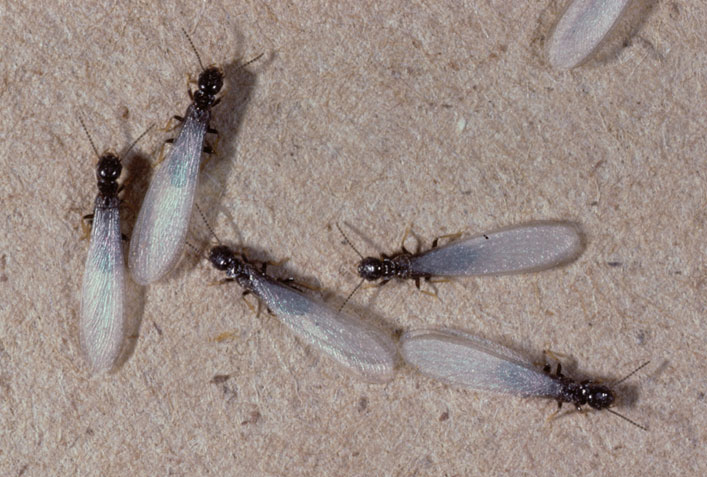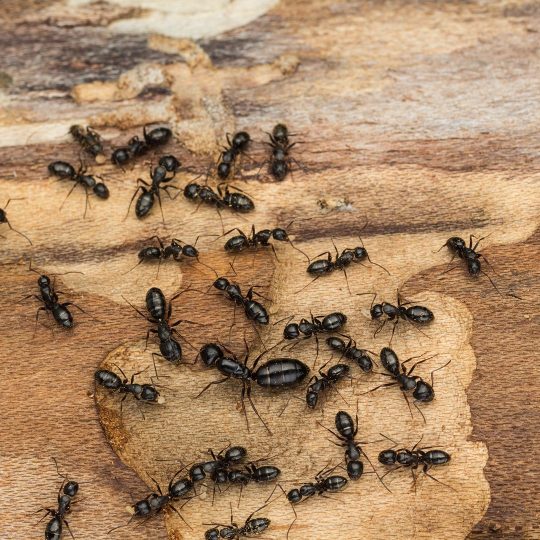Professional Ant Control Services: Personalized Treatments for Enduring Results
Environmental Influence of Pest Control: Balancing Efficiency With Sustainability
The environmental influence of parasite control is a vital issue that calls for a fragile balance in between accomplishing effectiveness in ensuring and taking care of insects sustainability of our environments. As we strive to shield our crops, homes, and health from the hazards presented by insects, the methods we use can unintentionally harm the setting. From the usage of hazardous chemicals that seep right into our soil and water to the unplanned repercussions on non-target species, the consequences of conventional bug control practices are far-ranging. However, there are arising techniques that supply hope for an extra sustainable technique to pest management. These remedies not only goal to resolve the instant parasite problems yet also take into consideration the long-term health and wellness of our planet.
Harmful Chemicals in Pest Control
The use of dangerous chemicals in pest control positions considerable environmental and health risks that require careful consideration and reduction techniques. Pesticides, herbicides, and insecticides are typically used to eliminate pests, yet their prevalent application can cause unexpected repercussions. These chemicals can contaminate soil, water resources, and the air, impacting not only the targeted pests yet likewise helpful bugs, wildlife, and human beings.

To address these threats, integrated pest management (IPM) techniques are being promoted as a more lasting choice. IPM entails a mix of techniques such as biological control, habitat control, and the targeted use pesticides as a last hope (ant control kannapolis nc). By adopting a holistic approach to pest control, we can decrease the ecological and health impacts linked with unsafe chemicals while properly handling pest populations
Influence On Non-Target Types
Considering the unintended repercussions of bug control techniques, the influence on non-target varieties is an essential element that requires detailed examination. While pest control actions aim to target specific bugs, other microorganisms in the ecosystem might be inadvertently influenced. Non-target species, consisting of helpful bugs, birds, creatures, and even plants, can endure direct or indirect harm from pesticide applications or organic control methods.
Insecticides developed to fight a specific bug parasite may harm pollinators like bees or all-natural killers such as ladybugs. Biological control representatives, if not species-specific, can posture threats to unintended targets, interrupting the ecological equilibrium.
To alleviate the effect on non-target types, integrated insect administration (IPM) methods that emphasize a holistic technique to pest control are recommended. These methods focus on the use of eco-friendly techniques, lessening injury to valuable microorganisms while efficiently managing pest populaces. Performing extensive threat analyses and keeping track of the results of bug control efforts are crucial actions in safeguarding non-target varieties and advertising total ecological community health.
Soil and Water Contamination
Unintended ecological consequences of parasite control approaches prolong beyond impacting non-target varieties, with substantial effects for soil and water contamination. Pesticides, herbicides, and chemical plant foods used in parasite control can leach into the dirt and pollute groundwater, presenting a hazard to both earthbound and water environments. Soil contamination can disrupt the equilibrium of bacteria vital for nutrient biking and plant development, causing lowered soil fertility and performance. These chemicals can persist in the environment for extended periods, collecting in the dirt and possibly entering the food chain.
Water contamination is one more critical issue associated with insect control techniques. To mitigate soil and water contamination from parasite control activities, integrated insect management techniques that prioritize sustainability and minimize chemical inputs are crucial.
Air Air Pollution From Chemical Usage
Direct exposure to air-borne pesticides during farming applications postures a substantial worry for air pollution control measures. They can volatilize into the air and kind unstable organic substances (VOCs) and other air-borne contaminants when pesticides are splashed onto crops - termite control. These chemicals can add ant control winston salem nc to the development of ground-level ozone, a significant component of smoke that can have harmful effects on human health and wellness, crop performance, and overall air top quality. Furthermore, pesticide drift, where chemicals are carried by the wind to unplanned areas, can bring about the contamination of close-by communities and water bodies.

Techniques for Lasting Pest Control
In the world of farming practices, executing sustainable insect control methods is extremely important for maintaining environmental balance and securing plant returns. Lasting pest control emphasizes the use of ecologically pleasant approaches to take care of pest populations efficiently while lessening injury to non-target microorganisms and communities. Integrated Insect Administration (IPM) is a commonly embraced technique that integrates organic, social, physical, and chemical control approaches to attain lasting bug administration options.
Plant rotation and diversity are also reliable methods to disrupt pest life cycles and develop less desirable problems for pests to grow. Eventually, by incorporating these sustainable pest control methods, farmers can achieve an equilibrium between pest monitoring efficiency and environmental stewardship.
Final Thought
Finally, the ecological impact of bug control methods have to be very carefully taken into consideration to balance performance with sustainability. Damaging chemicals used in insect control can bring about soil and water contamination, air contamination, and injury non-target types - termite control services. It is essential to apply sustainable bug control approaches to reduce these adverse results on the environment and promote a much healthier community for future generations
By embracing an all natural approach to pest control, we can reduce the ecological and wellness impacts connected with unsafe chemicals while effectively handling pest populaces.

To minimize the air pollution created by chemical usage, it is important to adopt integrated pest administration approaches that focus on the use of non-chemical insect control approaches, such as crop turning, natural killers, and immune crop ranges. Lasting parasite control emphasizes the usage of environmentally friendly approaches to manage insect populaces effectively while lessening injury to non-target organisms and environments. Integrated Pest Administration (IPM) is an extensively taken on approach that integrates organic, social, physical, and chemical control methods to achieve long-lasting parasite management services.